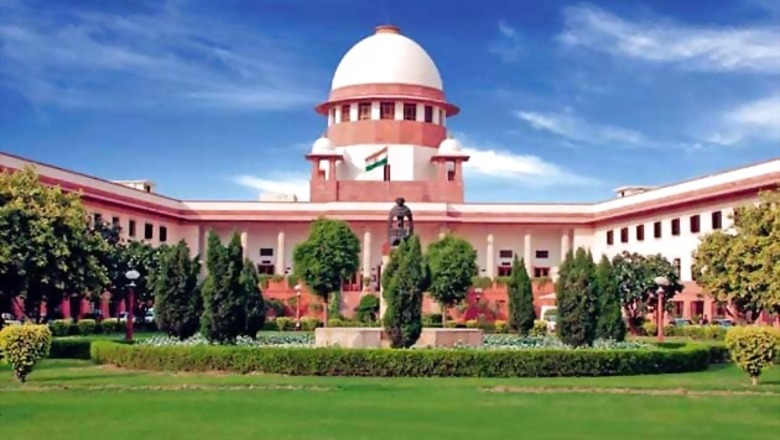
views
New Delhi: The Supreme Court on Wednesday restrained all high courts from entertaining any plea against two laws meant to replace the two-decade-old collegium system of judges appointing judges.
"No high court will proceed with the matters relating to the constitutional validity of these laws," a three-judge bench headed by Justice AR Dave said.
Wednesday's order prohibits high courts from hearing petitions challenging validity of the 121st Constitutional Amendment Act and the National Judicial Appointments Commission (NJAC) Act brought to replace the collegium system introduced in 1993.
On its part, Government contended that pleas challenging the validity of these laws are "premature" as they have still not been notified.
"The challenge is premature as neither of the Acts are notified and hence the question of interim order (of stay) also does not arise," Attorney General Mukul Rohatgi, appearing for Centre, told the bench, also comprising justices J Chelameswar and Madan B Lokur.
The bench said it will later decide as to whether these pleas are maintainable or not and if they should be referred to a larger bench and fixed the next hearing on March 17.
The Attorney General vehemently opposed the plea for grant of stay, saying, "The passing of an Act is irrelevant. What is important is the date of notification."
"It is our stand that Parliament has absolute power and competence to pass Constitutional amendments and legislation," the AG said, adding that in an overwhelming manner Parliament and states have brought about the change and the "will" of the legislature cannot be ignored.
He further said that a law becomes valid from the day it is brought into force through its notification and "validity of a law can be tested only when the law is notified".
The system, prevailing before the introduction of collegium system, had worked well and later, collegium system also worked well, but the new one is "healthier" as the judiciary, executive and the civil society have roles in it.
During the hearing, the AG said the seniority of judges in appointing the CJI has not been touched in the NJAC Act then "what is the fear?"
Responding to the plea that the laws "erode" the basic structure of the Constitution, he said, "The Constitution did not say that three judges will sit together and decide the appointment of judges."
Senior advocate Dushyant Dave, who intervened on behalf of the Supreme Court Bar Association (SCBA), supported the Centre saying that the present legislation is a "brilliant mixture of executives, judiciary and the civil society".
He also said the functioning of the collegium system has always been shrouded in secrecy and moreover, "there is no cause of action today as the Acts are not notified".
Senior advocate TR Andhyarujina also supported Centre's stand on the issue saying, "In no country of the world this system of judges appointing their brethren is operating".
On Tuesday, the apex court commenced the hearing on the validity of the Acts. The Centre, while defending the Acts, had "vigorously" opposed the pleas saying the new system will strengthen the system rather than weaken it.
Senior advocates Fali Nariman and Anil Divan, who were appearing for Supreme Court Advocates-on-Record Association (SCAORA) and an advocate respectively, had alleged that the NJAC Act would take away and knock down the independence of judiciary.
Rohatgi had countered their contention and termed the apprehension of the other side as "alarmist" and said that "there was no basis to say that executive will gang up".
Nariman had stressed that fait accompli should not be allowed to take place and the order should be passed to maintain status quo by referring the matter before a five-judge constitution bench otherwise the entire exercise would become a "dodo".
His view was shared by Divan, who had said the legislative exercise undertaken to replace the collegium system not only reduces and overrides judicial voice but it is drowned and looks like an irreversible situation.




















Comments
0 comment